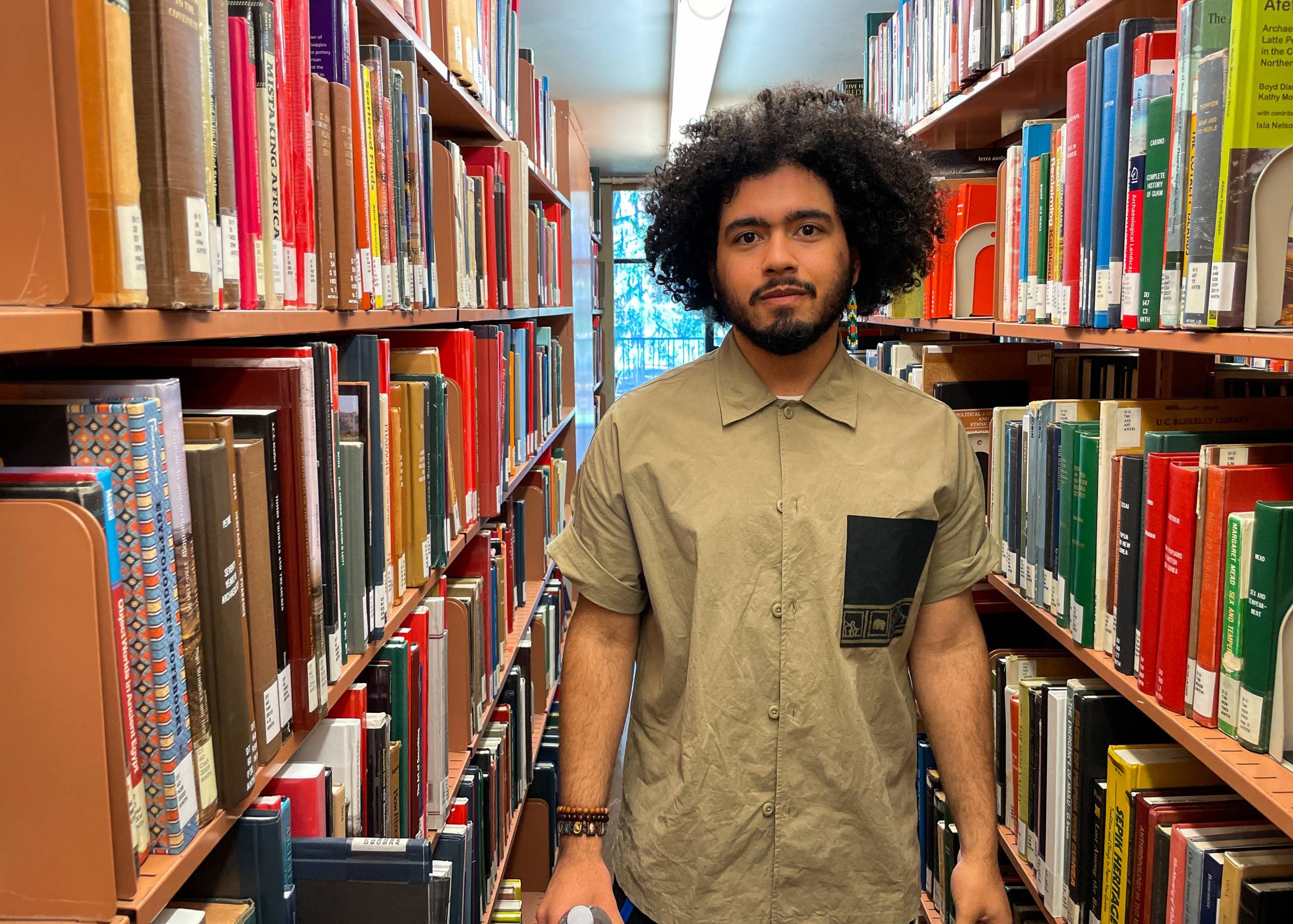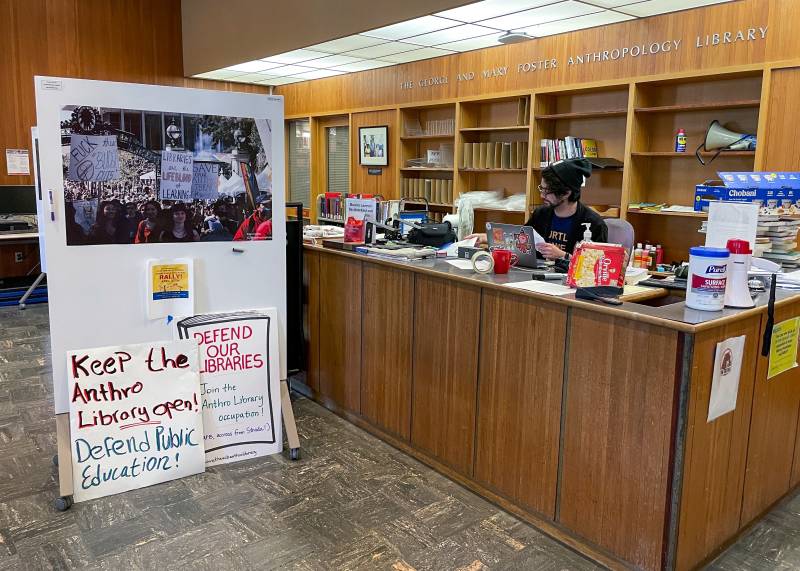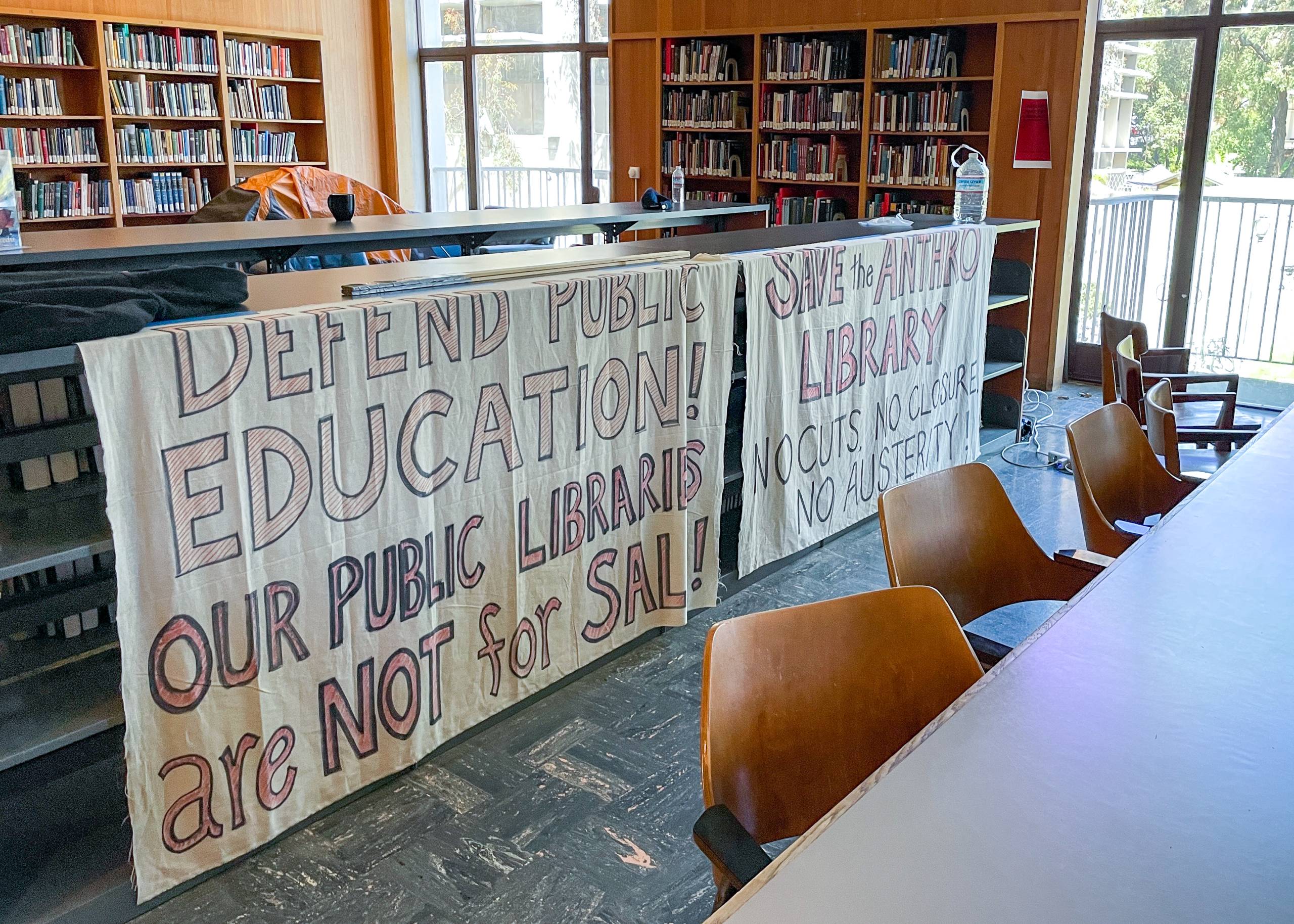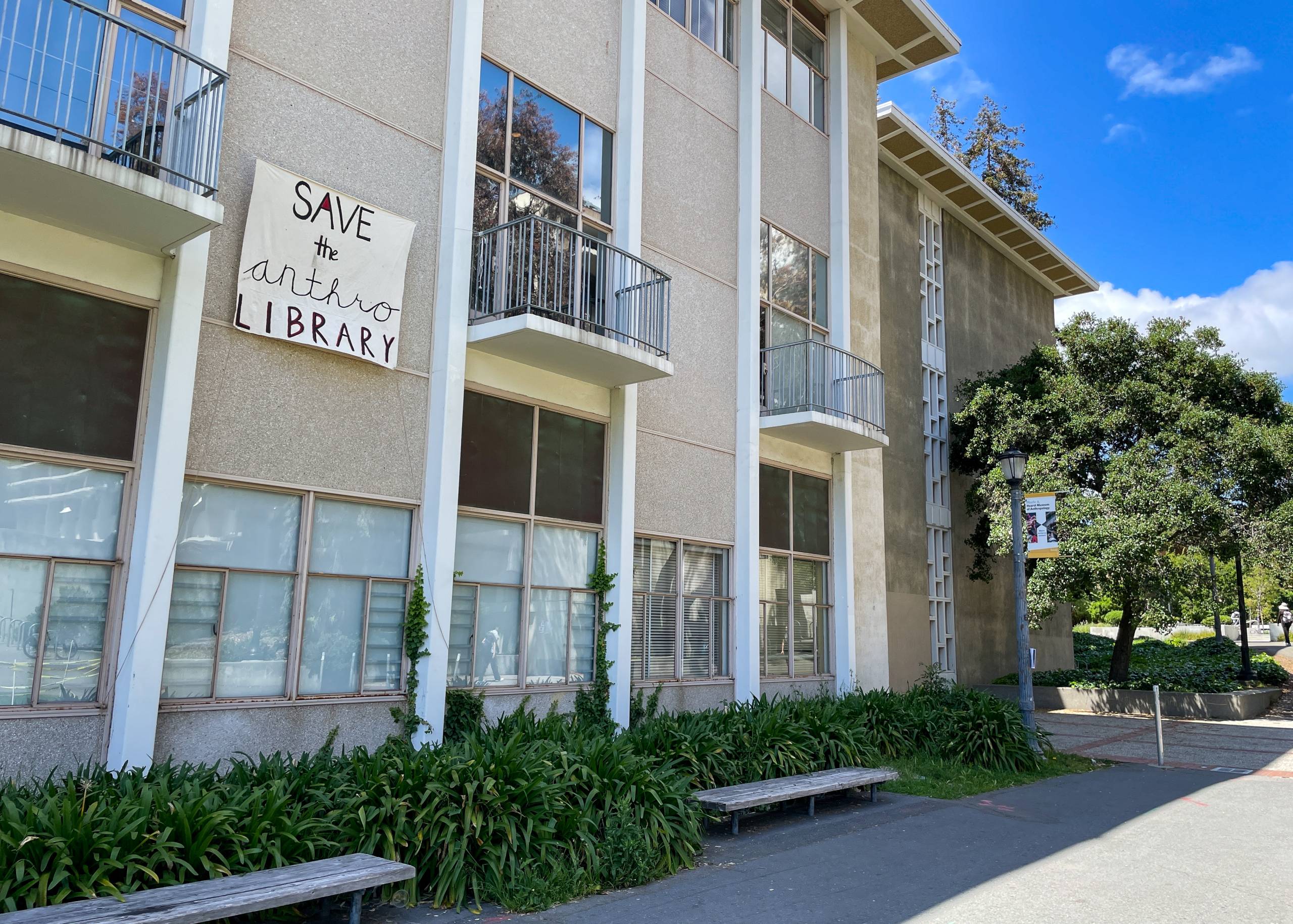Jesús Gutiérrez can often be found perusing a shelf full of myths.
Tucked among the second-floor stacks of the UC Berkeley Anthropology Library, the collection features stories curated by cultural origin. “For instance, classical European folktales, moving into folktales from Jewish and Black diasporas around the world. And interestingly, some books that contain cross-sections of these different kinds of traditions,” he said.
Ever since the university stopped staffing the library more than a year ago, the 29-year-old anthropology Ph.D. candidate has served as its de facto librarian.
“This library would essentially have been closed and just left to languish if the [anthropology] department had not stepped in and offered to hire me as someone to just basically keep the collection open and accessible,” he said.
Gutiérrez is leading a small but passionate group of students, faculty and community members who have occupied the George and Mary Foster Anthropology Library since April 21, pledging — in true Berkeley protest tradition — to live among its stacks until the administration halts its plan to close the facility.
“We are fighting for public resources for all,” said Gutiérrez, as he toured the library on a recent afternoon, passing a handful of students reading quietly at tables on the main floor. Only the cloth protest banners hanging from shelves and folded cots pushed into corners suggested any kind of situation out of the ordinary.
Gutiérrez said his group has already met with Chancellor Carol Christ and other campus administrators, and “tried every single bureaucratic channel,” to no avail.

Facing a projected $75 million budget shortfall, the university in February announced plans to close the library along with two other small specialty libraries — for math statistics and for physics and astronomy — and merge them over the course of the next two years with larger campus libraries as part of its “long-term space plan.”
The anthropology library is slated to shutter first, by January 2024, with its “low-use materials” moved to a Richmond warehouse and “a significant portion” of its remaining collections transferred to the stacks of the main campus library, according to a description of the plan on the school’s website.



